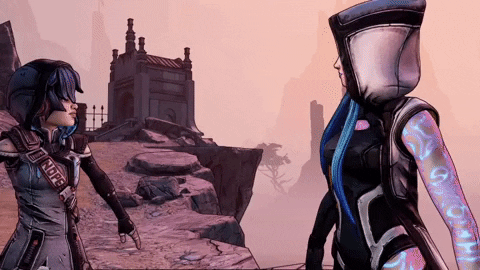However you feel about the gaming industry, it’s hard to deny its market value growth over recent years.
The latest data shows the global game market surpassing $135 billion, with mobile games accounting for almost half that value.
Gaming is more popular than ever thanks to influencers, streamers, advertisers and sponsors, and the success of Esports. But what feeds the gaming industry is the steady release of quality games from small indie studios to large publishers.
With a variety of game engine software available today, developing PC, console, and mobile games have become more efficient.

Those interested in developing games will need to understand which programming languages are best suited for certain game types, platforms, and engines. We asked three experts in the gaming industry to break down these languages for us.
Best programming languages for games
Before the pre-production phase of development, before coming up with a game concept, before hitting the art-boards and designing levels, you’ll need to decide which engine and programming languages will be used to build your game.
Casual and mid-core games
Our first insight comes from Viktor Lavrentyev, CTO of Orangesoft. Viktor has nine years of expertise in mobile game development and more than 250 projects completed.
--
Let’s put aside high budget AAA games and talk about casual and mid-core games that have the highest market share at the moment. These games include platformers, puzzles, point-and-click games, farms, simple real-time strategies, and many others.
| Key term: AAA (pronounced Triple-A) are games released by mid-to-large-sized publishers. These games have the highest development and marketing budgets. |
Developing games for this huge market doesn’t imply you’ll have to choose a programming language and build your own engine. Instead, it implies using existing engines and development tools.
Mobile games
If you decide to develop a game without tons of animation and graphic effects for iOS or Android platforms, then you’d probably choose between native development tools, such as:
In this case, you’ll get an application with the smallest possible size and the smoothest interface based on Apple and Google design guidelines. These games include quizzes, puzzles, sports management simulations, and more.
Native development platforms are intuitive since they have ready-made tools for project implementation using machine learning, augmented reality, and virtual reality.
Video games
In all other cases, I recommend using the Unity Engine (written in the C# programming language). Unity stays on top of new technologies and supports porting projects to all relevant platforms. Whether you’re working on a small 2D game or developing a 3D project using AR/VR, Unity will provide you with all the necessary tools for bringing your ideas to life.
 Ori and the Blind Forest, created using Unity Engine
Ori and the Blind Forest, created using Unity Engine
The main pros of Unity are the store of assets, templates (so that developers don’t have to reinvent the wheel), large community, a considerable number of qualified specialists, the constant system development, and pricing.
Unity is also convenient for artists, designers, project managers, and product owners. The visual studio game development (WYSIWYG) allows you to check the result in real-time even before launching the app on the final platform. Unity has a fairly low entry threshold and game designers can customize gameplay directly in the project without distracting the team from the main workflow.

If we’re talking about AAA blockbuster games, that would be another story with different approach, deadlines, budget, and team background.
Indie games
Our next insight comes from Samuel Franklin, CEO of Games Finder. Sam has been in the gaming industry for over 10 years with a focus on indie development.
--
In my opinion, C++ is the go-to programming language for any small-to-mid-sized developer in the current market for the additional benefits it provides.
Currently all mainstream languages are generally suitable to developing most video game ideas so you'll want to consider additional benefits when picking a language. C++ is the ideal language from this perspective as it is the language of Unreal Engine which has the flexibility of PC and mobile.
More importantly, it also opens up a sizeable revenue split advantage when selling on the new Epic Games Store.
AAA games
Our final insight comes from Vadim Tihonyuk, developer at Beetroot. Vadim has experience in Unity 3D.
--
Choosing the right programming language for game development depends completely on your goals and objectives. Me personally, I think the best language for AAA games is C/C++. It’s used for Unreal Engine and some big companies’ proprietary game engines.
Video games
To start, C/C++ is a cross-platform language, which means the code can be executed on multiple platforms. But the biggest advantage of this language is that it has a low-level memory control. Managing memory is crucial for game development since it has a huge effect on performance. Moreover, you can easily learn C# and Java once you’ve mastered C/C++.
 Borderlands, created using Unreal Engine
Borderlands, created using Unreal Engine
Mobile games
If we’re talking about mobile development, then C# would be the best option, considering that it’s the main programming language for Unity Engine.
When using C#, you’ll be able to write complex gameplay codes, which will be executed on any platform that supports Unity. Plus, it has a simple intuitive-understandable syntax and there are tons of educational materials to help you learn the language. Famous services have .Net APIs and are sometimes ready to use packages for Unity.
To wrap up, if you are just starting your path in programming and game development, choose Unity and C#. Once you get more in-depth experience, you can move to Unreal Engine and C++.

To summarize
Deciding on a game engine and its programming language(s) is often the first step in creating a game. It’s a decision that will affect many aspects of the game itself, like which platform it runs on, how it looks and feels, efficiency, and performance.
Fortunately, games can be created with a variety of engines and languages. It’s up to your team to gauge the strengths and limitations of each before manifesting ideas.
Looking for a game engine for your next project? Here are the top five free game engines to consider in 2019.
 by Sagar Joshi
by Sagar Joshi
 by Devin Pickell
by Devin Pickell
 by Devin Pickell
by Devin Pickell